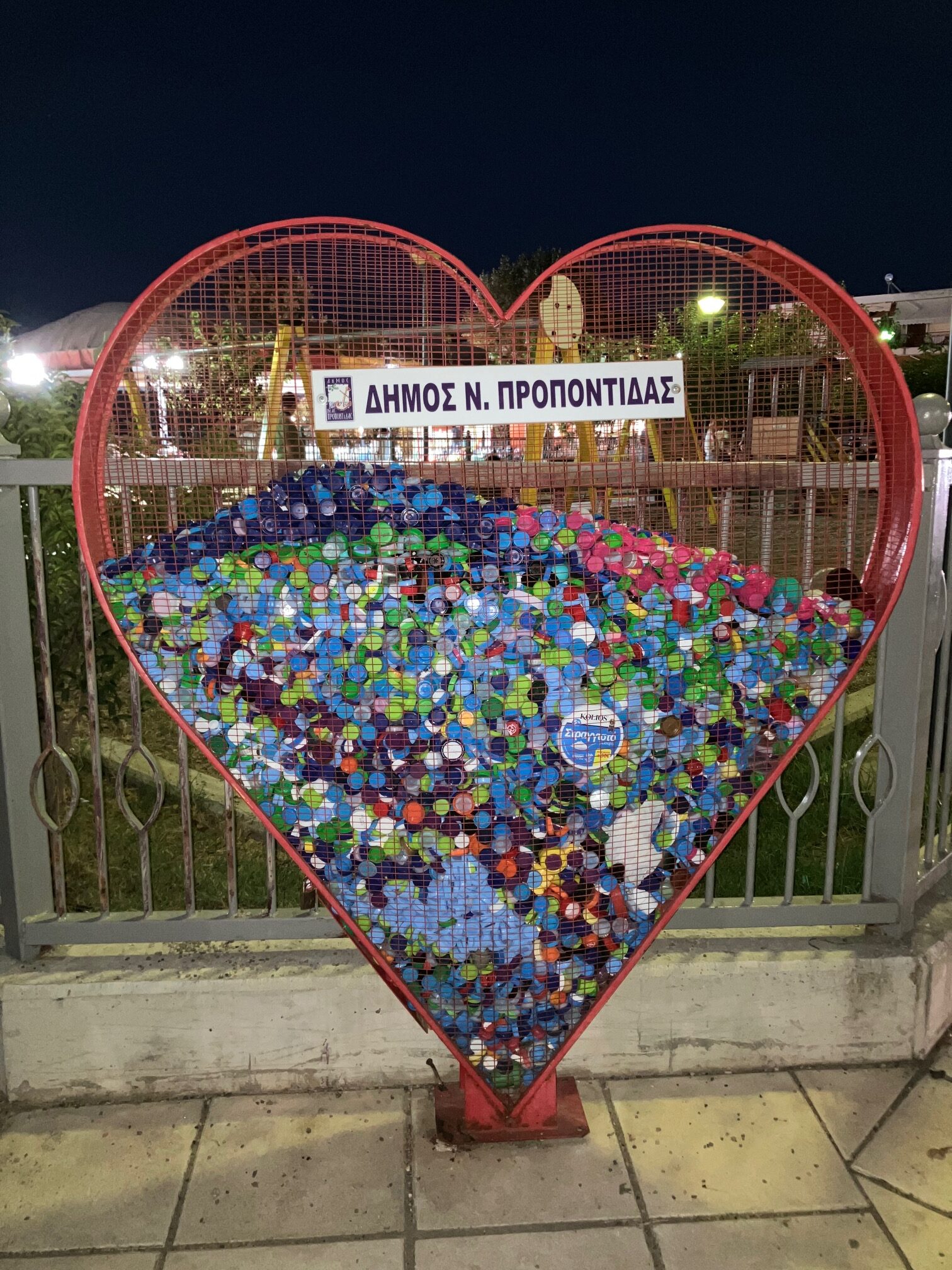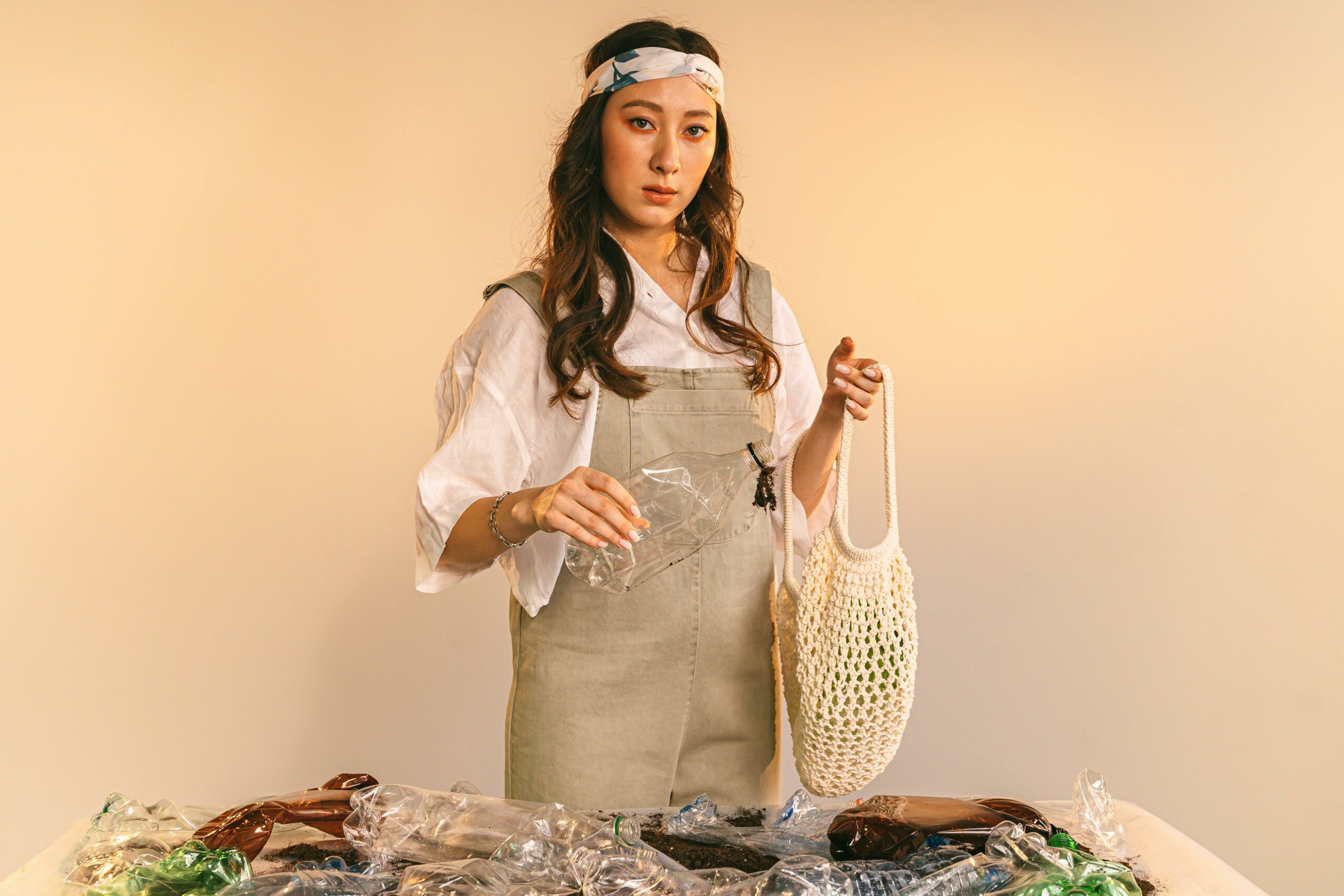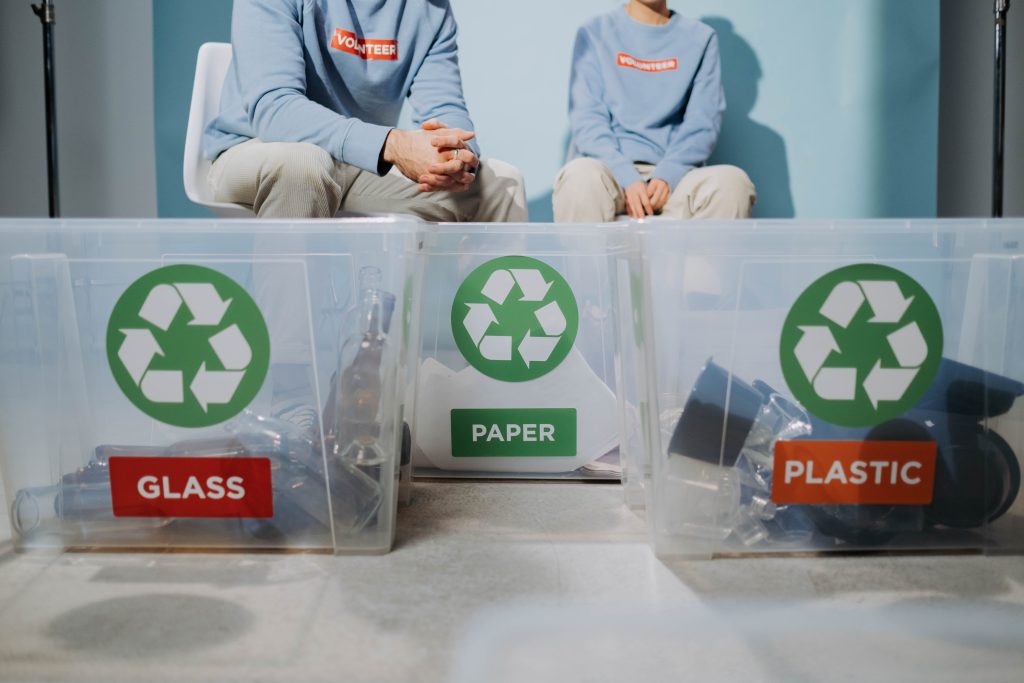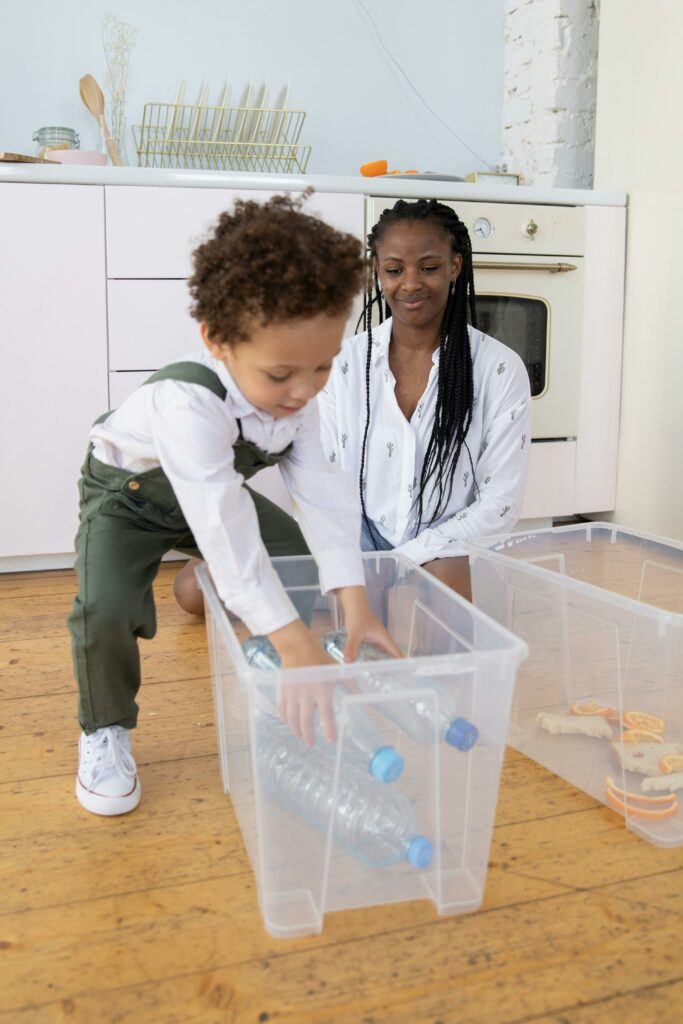You may be a keen recycler but are you as green as you think?
For example, do you wash out yogurt pots or do you believe that dirty items will be washed as part of the recycling process? Do you think grease on cardboard takeaway containers doesn’t count?
Recycling can be a subject that causes arguments in households, with everybody thinking they know the right rules.

Yet people who recycle wrongly cause tonnes of recyclable items to be rejected and incinerated, costing councils £48m a year.
The recycling industry has a name for people who have the right motivation but the wrong methods – ‘wishcyclers’.
Wishcyclers feel so guilty about waste that if in doubt they put items in the recycling and hope for the best. They rarely seek advice or keep up with changes in policy so they’re unaware when they get it wrong.
The most common contaminant is food in unwashed containers and crusts left in pizza boxes. At recycling centres loads are sorted and checked for sources of contamination. Even small amounts of leftover food (including grease on takeaway containers) and liquid make other items in the collected recycling dirty and can damage or clog the sorting machinery.
According to a report in The Sunday Times, a used teabag in a bag of paper would count as low contamination and depending on the facility would get removed by hand or machine, but if the contamination is high – lots of food waste , wet paper, used nappies – then the whole bag and possibly other bags in the same lorry will be incinerated.
The costs are disastrous for local councils – not only do they bear the cost of incinerating the waste but they are also losing out on money they could have earned from selling the recyclable materials.
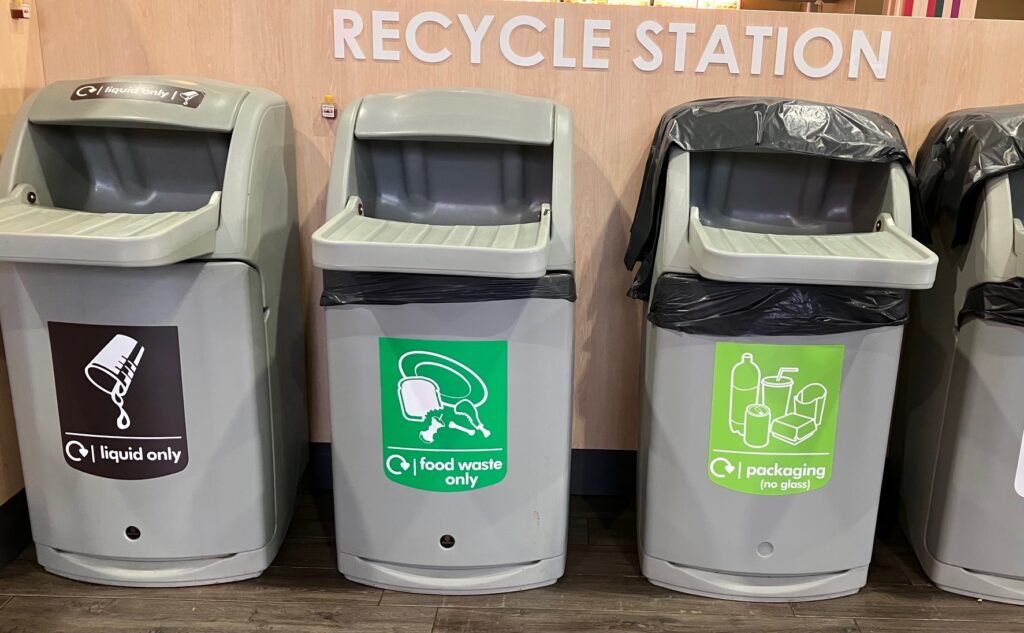
Do the right thing – separate recycling bins in a UK service station
In 2019/20, 525,000 tonnes of household recycling collected by councils was rejected at the point of sorting, according to the Local Government Association. Each tonne from a household bin that cannot be recycled costs an extra £93 to incinerate, amounting to £48m a year.
Foods or liquids can contaminate other recyclables. If bottles contain liquid they may be deemed too heavy by the automatic sorting process and rejected.
Other items mistakenly put in recycling bins include clingfilm, plastic wrapping, nappies, wet wipes, used tissues, kitchen towel and foil.
The best kind of street heart
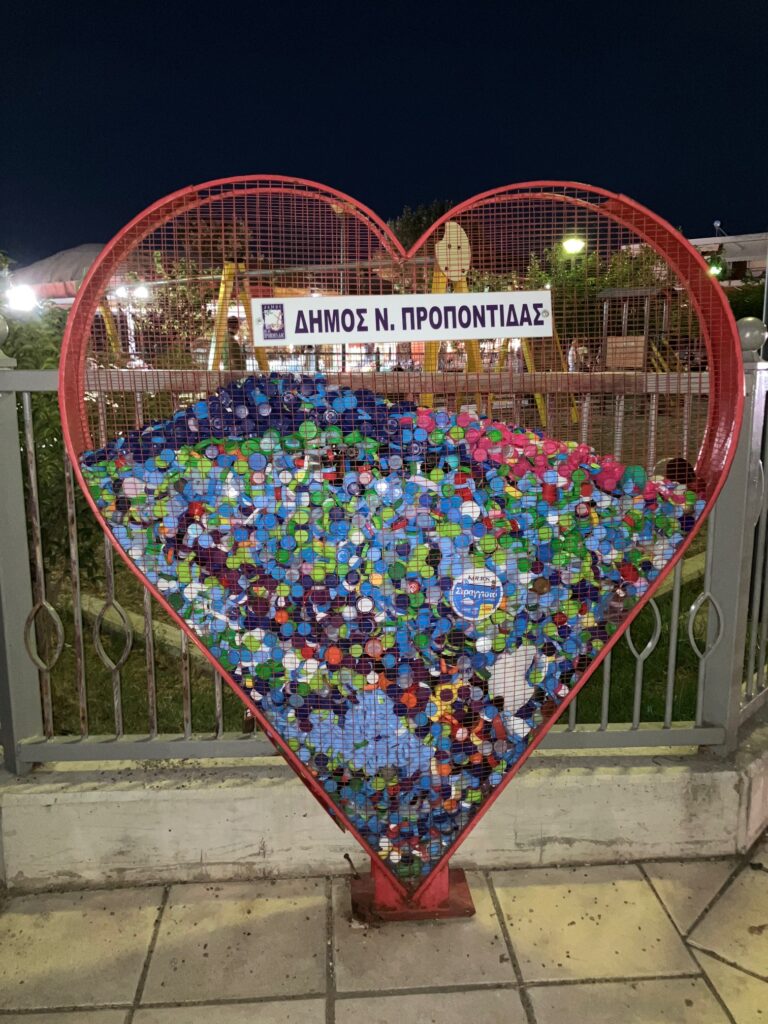
Our main photo shows a wonderful idea that we came across on the streets of Simantra in Chalkidiki, Greece, to inspire residents to recycle plastic bottle lids.
The heart-shaped containers accept donated lids, which are amassed to raise funds to buy wheelchairs for people who can’t afford them. It’s a fantastic practical idea that looks good too, and you can just imagine that children love popping their lids into the container.
The local council started collecting the lids years ago, but people used to save them at home in bags until someone had the brainwave of the heart-shaped containers out on the streets. This obviously makes it easier for collection as well as motivation.
*******
It’s in all our interests to recycle better. Check out these Dos and Don’ts of Recycling:
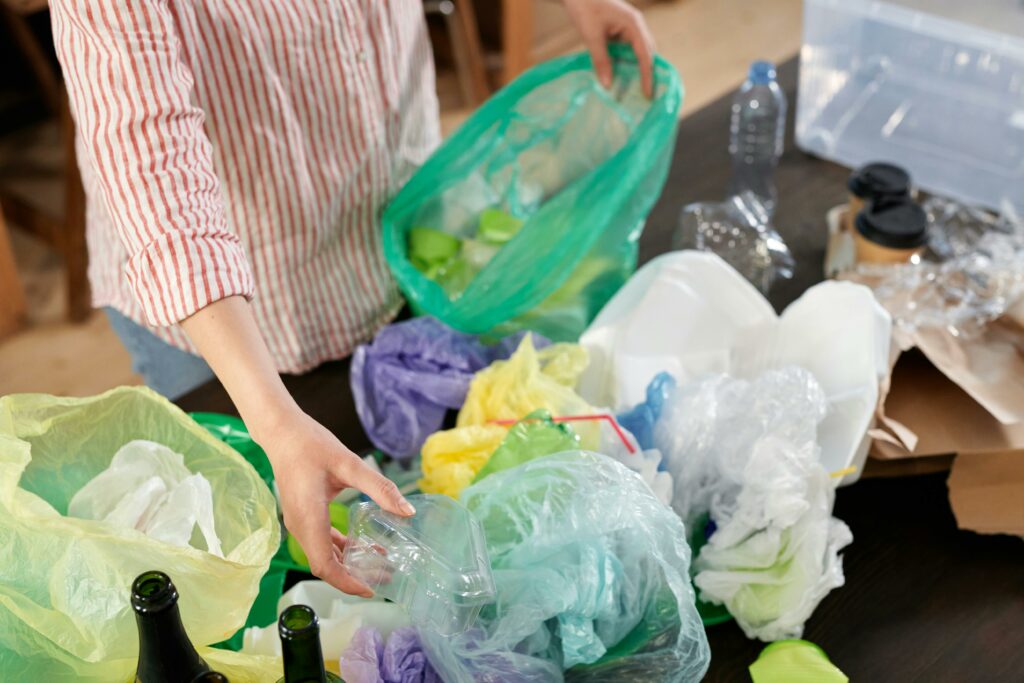
DO
- Check out the Recycle Now website by typing in your postcode and tracking what can and can’t be recycled locally – www.recyclenow.com.
- Ask staff at your local recycling centre for information if you’re still not sure what can go where – don’t guess. Currently there are regional variations in what can be accepted for recycling.
- Rinse out plastic bottles, squash them and put the lids back on – this means they take up less space in bins, in the lorry and at the recycling centre.
- Add envelopes with plastic windows – the windows aren’t recyclable but the sorting system at the recycling centre can extract them.
- Rinse out tins to get rid of food residue – use your washing up water to do this.
- Check out what recycling options supermarkets offer – large stores are keen to offer recycling services because that’s what their customers want. It makes sense because people will go to a certain supermarket because of this. Our local Tesco is a magnet for recyclers, with containers collecting soft plastics and other items.
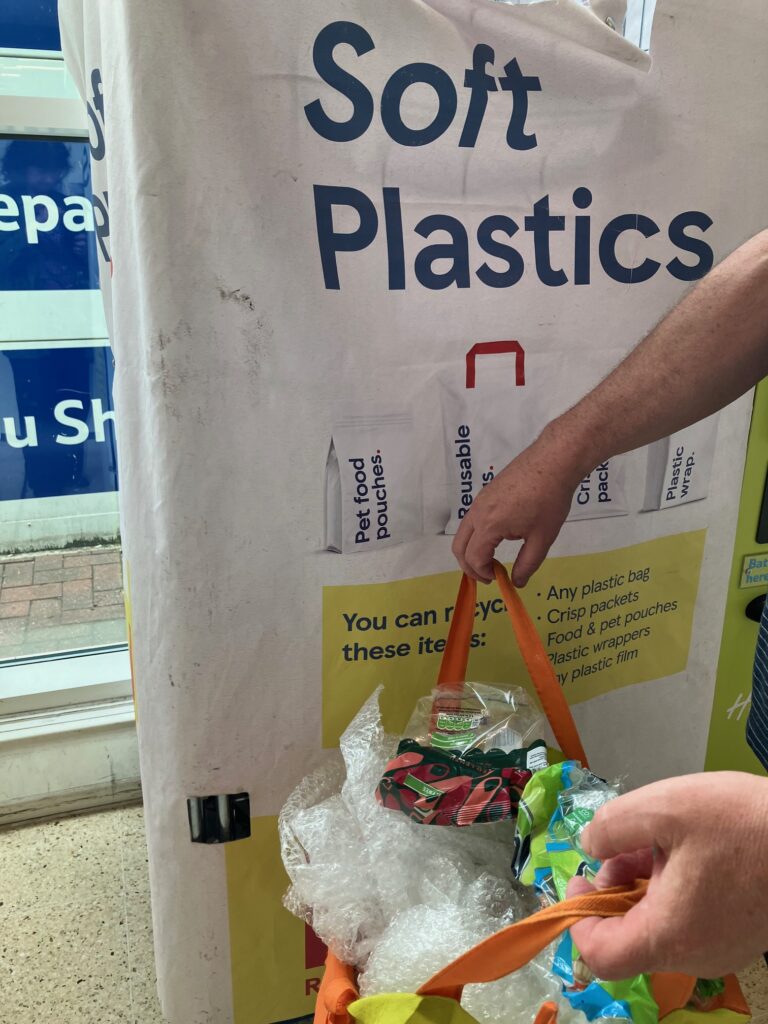
Soft plastics recycling at Tesco
- If you have more plastic bags than you can possibly reuse, recycle them at supermarket drop-offs.
- Use refills where you can. Many companies offer refill options for appropriate products, such as Abel and Cole’s Club Zero refillable options. You return the original container and store the produce at home in a container of your own. They also collect hard-to-recycle plastics and transform them into sustainable building materials.
- Repurpose containers – the plastic containers that your shop-bought fruit or veg comes in can be used for planting seedlings in.
- Use charity shops – as a donor and customer. Charity shops keep 339,000 tonnes of textiles a year out of landfill. Buying second-hand clothes also encourages you to be creative and customise clothes in a way you might not if you’ve spent more. Eco-influencer Nancy Birtwhistle has a recipe for odour neutraliser for second-hand clothes and furniture. And it’s not just clothes that are second-hand bargains. You can also make some money if you’re savvy; I heard that a customer who bought pottery items from my local Oxfam resold them for £1,000.
- Check out freecycle.org and ilovefreegle.org. These are brilliant way of donating – and finding – a huge variety of things based on the philosophy that one person’s trash is another’s treasure. They are non-profit, free organisations that link you with people in your area who need things or want to get rid of them, keeping good stuff out of landfill.
- Check out vintage furniture – Buying second-hand furniture is not only the planet-friendly choice but the stylish one too these days as more and more people appreciate the character and workmanship in vintage furniture. Pieces from the 60s and 70s are currently in demand as people scour eBay for items such as smoked-glass tables or boucle chairs that they remember from their childhood. If trawling round antiques markets and reclamation yards isn’t for you, check out websites such as vinteriors.co.uk, selency.co.uk, or the Narchie shopping app.
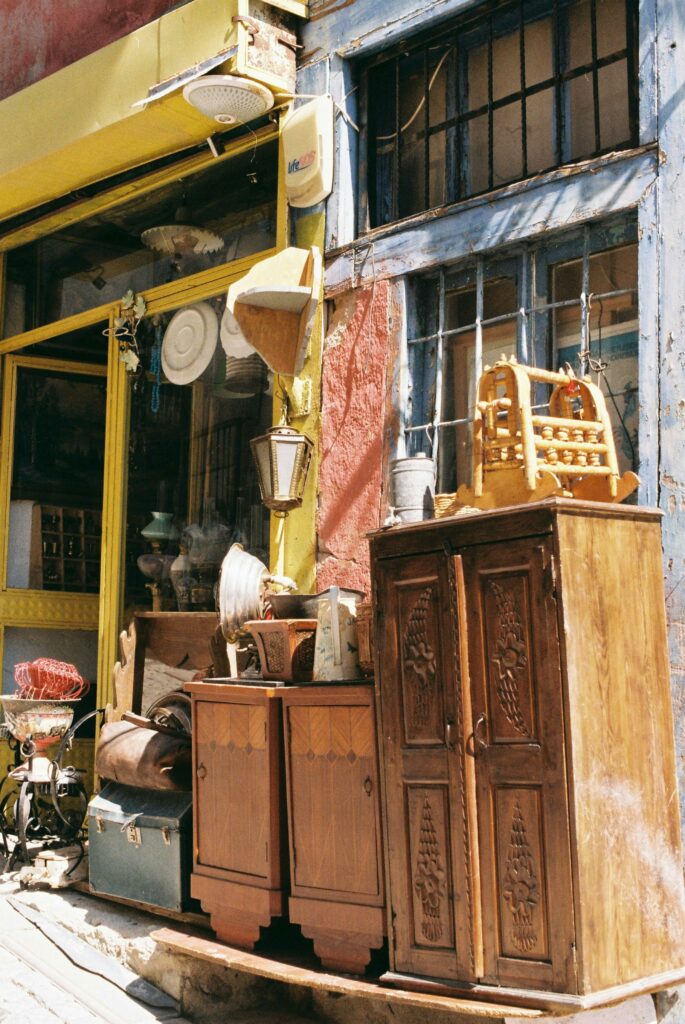
- Upcycle furniture with a lick of paint. If you use chalk paint you don’t need to sand it down first. We love Lakeland paints (lakelandpaints.co.uk) which are organic and chemical free and, we can confirm, odourless. There are also recipes online if you want to try making your own.
- Transform pallets into planters, garden furniture, bug hotels and seed trays. You can ask at a local builders’ merchants or ask permission to take them if someone is throwing them out in a skip.
- Check notices at your recycling centre – our local bottle banks changed recently, with glass of all colours now accepted in each container rather than having to be separated out. When I asked staff at the site after reading a notice about this, I was told that new machinery can separate out the different colours.
- Learn more locally –with the Horizon app (horizonapp.uk). By scanning barcodes you can learn how to recycle packaging in your area.
- Look up The Recycled Candle Company, which makes all its hand-made candles from scrap wax, saving more than 40 tonnes of wax from landfill every year. They extract the wax from the containers so the containers can be recycled. They have collection points for consumers to drop off used candles in churches, libraries and gift shops.
DON’T
- Don’t use charity shops as dumping grounds for your rubbish that you can’t be bothered to sort through yourself. Anything donated should be clean, undamaged and in good condition. Poor quality leftover clothes are commonly exported overseas and the local textile economies are swamped by European cast-offs. Artisan traders buy bags of castoffs hoping to repair and upcycle items for resale, but increasingly poor quality means it’s harder and harder for them to make a profit. So the clothes end up as waste and are dumped or washed out to sea. Remember the first rule of the ‘buyerarchy’ is Refuse – as in refuse to keep consuming.
- Don’t throw away pots and tubs with the film still on, it can’t be recycled.
- Don’t try to recycle pyrex dishes and drinking glasses – they are chemically heat treated to stop them melting at the same temperature as other glass.
- Don’t put corks in recycling without checking first. They can be recycled at some recycling points – check at www.recyclenow.com. You can home compost them or use as mulch on plants, chopped into small pieces. Alternatively send them to cork recycling schemes such as Recorked UK, who resell them and donate a percentage of profits to charities – recorkeduk.org
- Don’t rely on clingfilm – instead use reusable, washable beeswax food wraps.
- Don’t try to recycle containers from scented candles if they still contain some wax – scrape off the residual wax.
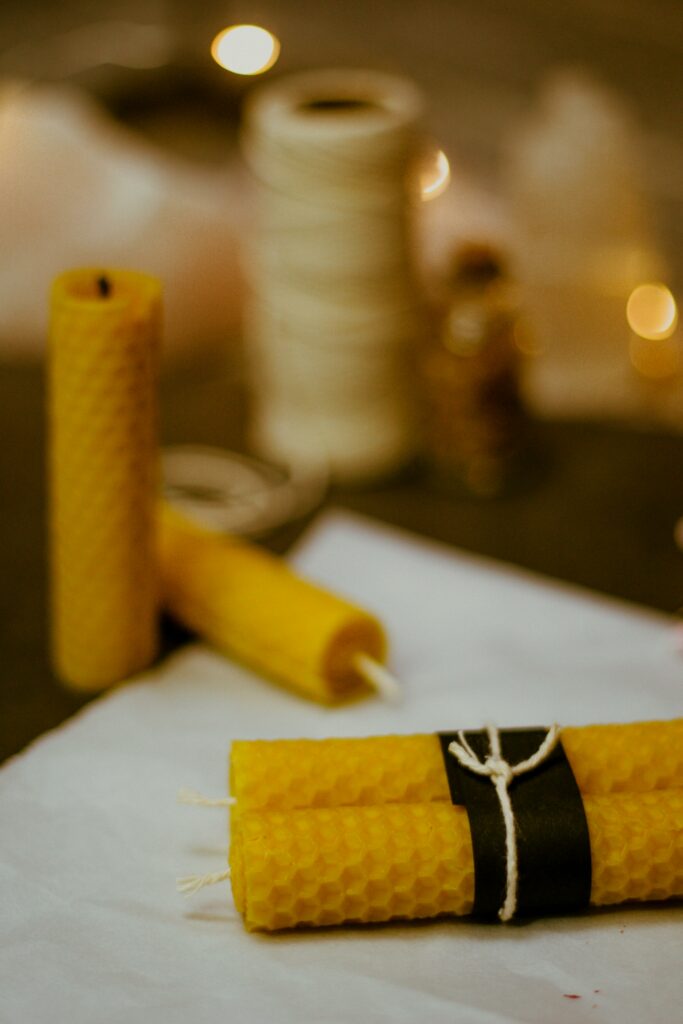
On the subject of candles, try to buy them from renewable sources, such as soy-based or beeswax candles. Cheaper candles are made from paraffin wax, which is derived from petroleum by-products. Paraffin burns quickly as it has a higher melt point whereas a high-quality wax burns more slowly.
Julie


